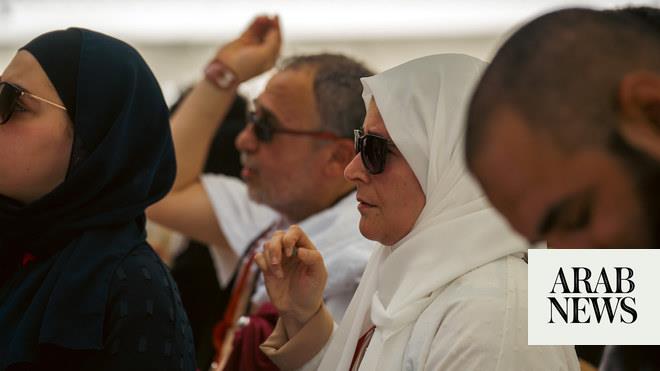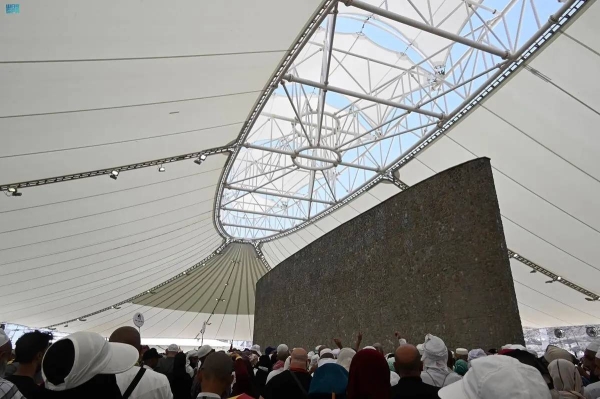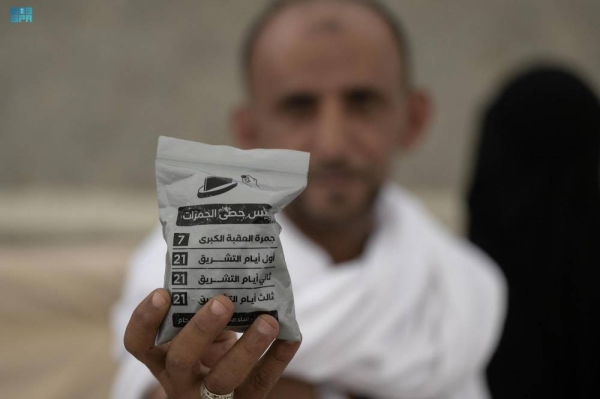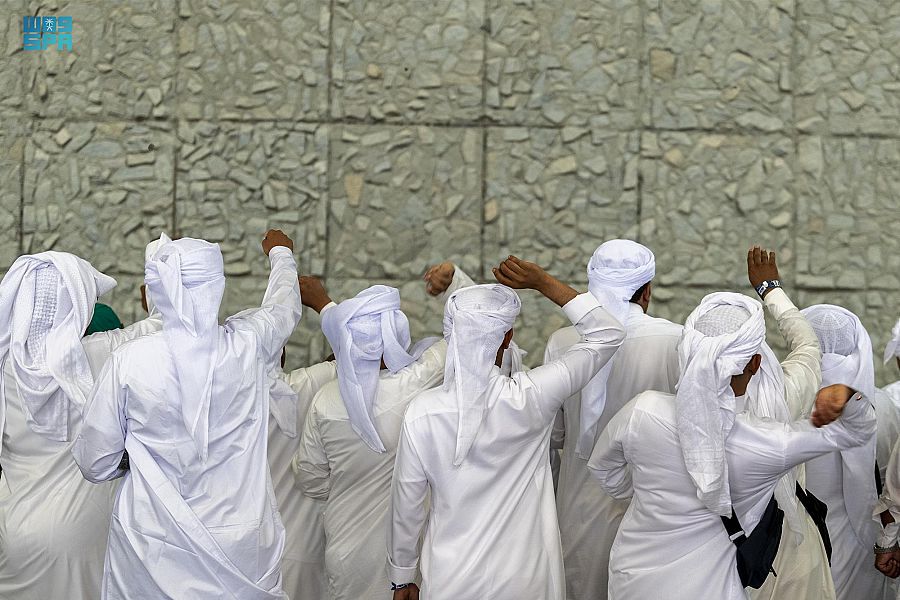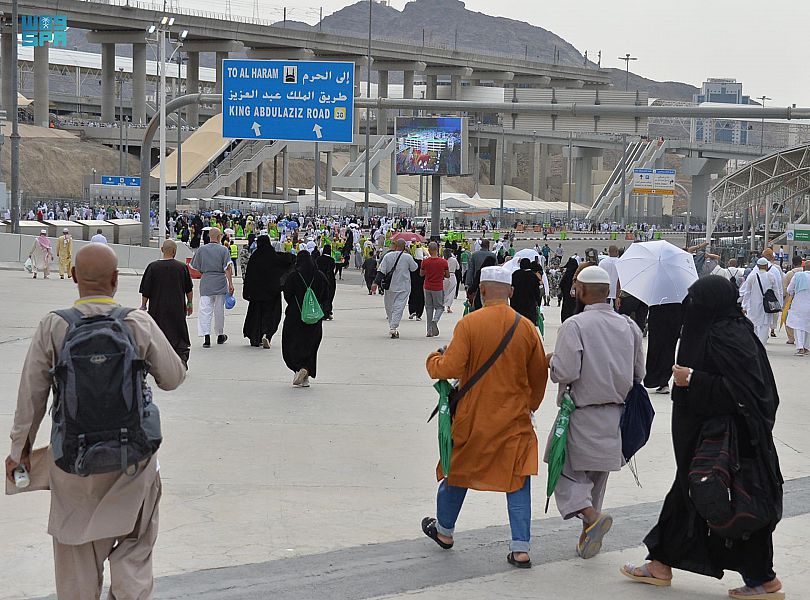
JEDDAH: King Salman on Friday hailed the success of this year’s scaled-down Hajj pilgrimage and expressed hope that Eid would mark the turning point toward the end of the COVID-19 pandemic.
In a message to the nation, delivered by the Acting Minister of Media Dr. Majid Al-Qasabi, the monarch praised the efforts of all those who had been responsible for organizing Hajj and ensuring the safety of the small group of pilgrims specially selected to perform the religious duty.
Worshippers took part in the final stage of Hajj on Friday as Muslims worldwide marked the start of the Eid Al-Adha holiday amid virus-related lockdowns and restrictions that have disrupted almost every aspect of this year’s pilgrimage and celebrations.
In his address, King Salman said: “Hajj was held this year with a very limited number of pilgrims of multiple nationalities, to emphasize the necessity to hold the rite despite the difficult circumstances, while also preserving the highest safety standards for pilgrims to perform their rituals within procedures that would guarantee their security, safety, and comfort.
“We appreciate the high trust of our Muslim brothers in what we have taken in this regard.
“I wish this Eid to be the first sign that augurs well for the reversing of the COVID-19 pandemic, and its disappearance soon.
“I pray that all Muslim occasions always confirm their unity on concepts of love and goodness and express the tolerant message of Islam that encourages communication and cooperation with the whole world to achieve peace and stability,” he added.
The king pointed out that the cooperation of Saudis and expats in following COVID-19 precautionary measures had contributed to mitigating the spread of the virus.
The number of new COVID-19 cases in Saudi Arabia has fallen for the sixth day in a row. There were 1,686 new cases recorded in the 24 hours as well as 4,600 new recoveries and 24 new deaths.
On Friday, around 1,000 pilgrims chosen to perform this year’s Hajj, moved from Muzdalifah to Mina where they headed to the Jamarat wall for the symbolic Stoning of the Devil ritual during which pebbles are thrown at the largest of the three pillars, known as Jamarat Al-Aqabah.
The worshippers then made their way to Makkah to perform Tawaf Al-Ifada (circumambulating the Kaaba), an essential part of Hajj, under strict social distancing measures.
Male pilgrims shaved their heads or trimmed their hair on the third day of Hajj (Eid Al-Adha), while female pilgrims cut the tips of their hair, with the Hajj Ministry having prepared virus-safe shaving service sites in Mina.
The efforts made by Saudi authorities to ensure the health and safety of pilgrims have won global praise.
Pilgrims selected to perform the once-in-a-lifetime duty described the experience as exceptional.
One of them, Ruslan Margoshvili, a Georgian expat living in the Kingdom, said: “Having spent Eid Al-Adha while performing Hajj is not just one celebration, it’s a double celebration.” He said it had been a privilege to have been chosen, adding that despite the COVID-19 restrictions organization of the pilgrimage had gone smoothly.
Hamide Halimi, a Macedonian resident in the Kingdom who left her daughter and husband in Riyadh to perform her first Hajj, said: “Jamarat was such a breeze and it’s been that way performing all our rituals. Celebrating Eid in Hajj is special to me especially since it is my first time, but the experiences I’ve gained are more than I had imagined.






